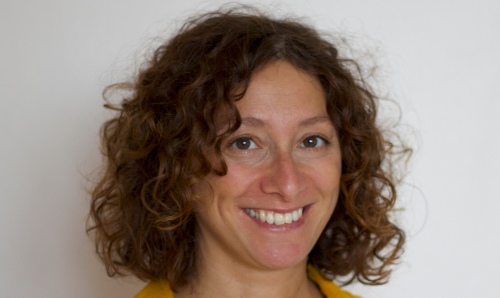Project team and partners
Project team
Professor Saska Petrova, Principal Investigator

Saska's research and policy contributions are situated at the intersection of precarity, gender, and energy resource use.
Working in under-represented communities across the United Kingdom, Europe, South Africa and China, Saska has interrogated the political governance and contestation of social and environmental injustices.
She uses insights from political ecology and feminist geographies in seeking to transform knowledge and practice on low-carbon transitions.
Saska has been involved as Principal Investigator or Co-Investigator in over 20 research projects funded by the European Union, several UK research councils, the Royal Geographical Society, Cheshire Lehmann Fund and the Higher Education Academy. Their findings have been published in her monograph on Communities in Transition (Routledge, 2014) while being integrated in multiple decision-making documents and strategies. This includes legislation and policy issued by the European Commission and Parliament, the Jacques Delors Institute, the French Institute for International Relations, as well as the UK National Union of Students.
For more information visit Saska's research profile.
Dr Giulia M Mininni, Research Associate

Giulia is a social scientist in energy and sustainability transitions.
Her research explores issues of inequality and power dynamics with a focus on gender differences and feminist approaches.
Giulia has been working in several research projects in the UK, India and Africa centring on women's empowerment, citizen co-benefit from energy demand reduction, retrofitting, and socio-technical implications of energy transitions, securing funds from various institutions.
Giulia was also awarded the UKIERI Fellowship at the TATA Institute in Hyderabad and several funds for her research. In addition to her PhD, she has an MSc in environment and sustainable development from the University College London and she worked for different agencies within the fields of sustainability and international development in the UK and in India.
Dr Lin Zhang, Research Associate

Lin is a human geographer; her research focuses on quantitative analysis to uncover socio-spatial vulnerabilities as well as gendered disparities in energy access and use in different contexts (including Western Balkans, the UK and China).
Before joining GENERATE Project at The University of Manchester, she contributed to the UKRI Future Leaders Fellowship project (mapping ambient vulnerabilities in UK cities) led by Dr. Caitlin Robinson at the University of Bristol. Her work focused on the interconnections between summer energy poverty, air quality, and climate factors, and how they influence vulnerable households.
Lin completed her PhD at the Sustainability Research Institute, University of Leeds, studying the spatio-temporal evolution of energy poverty in China, including its assessment, drivers, and policies.
For more information visit Lin's research profile.
Project partners
Epoka University is a leading higher education institution in Tirana, Albania, established in 2007. It offers a wide range of undergraduate, graduate, and doctoral programs across disciplines such as economics, engineering, law, and social sciences.
The university is known for its commitment to academic excellence, modern facilities, and an internationalized education approach. With a focus on research, innovation, and professional development, Epoka aims to equip students with the skills and knowledge needed to thrive in a globalised world.
Sustainable Energy Transition Centre (RESET) is an independent “Think Tank” established 2020 with the basic goal to contribute to the understanding of the need for a fast, effective, efficient and fair energy transition in the countries of the region.
The Centre brings together experts of various profiles from BiH and the region who through their joint activities can contribute to the creation of efficient and sustainable policies for the development of energy, economy and society as a whole.
Visit the Democracy Plus website for more information.
Eco-team's main activities focus on environmental protection, sustainable natural resource management and climate change mitigation.
Eco-team advocate for public involvement in environmental decision-making, educate both the public and private sectors on environmental issues and empower youth to engage in decision making processes. Eco-team’s initiatives include promoting decarbonisation of the energy sector, biodiversity conservation and restoration, and sustainable socio-economic practices.
The Environment Improvement Centre (EIC) is dedicated to fostering a transition toward a citizen-centred society characterised by depollution and smart governance. Their mission is achieved through research, policy monitoring, advocacy, public information, education, and direct engagement with citizens.
At the core of their efforts lies the transition to renewable energy and a circular economy, aiming not only to implement innovative technologies but mainly to cultivate active citizen participation and empower local communities. By fostering a sense of ownership, they seek to ensure these processes are sustainable, inclusive, and impactful for long-term societal and environmental progress.
Eko-svest stands at the forefront of environmental activism in Macedonia, pioneering efforts to address coal and energy-related issues while advocating for the adoption of renewable energy sources.
With a proven track record of impactful campaigns and a deep commitment to sustainable practices, Eko-svest has emerged as the leading organisation in the country dedicated to tackling energy challenges. Its ongoing initiatives have garnered recognition from key stakeholders in the energy and climate sectors, positioning Eko-svest as a trusted voice for change. Eko-svest’s broader mission is to combat climate change and promote stewardship.
Advisory board
- Professor Peter Newell, University of Sussex, UK - a world-leading scholar on the political economies of energy system change and inequality.
- Professor Liviu Chelcea, University of Bucharest, Romania - an established researcher on post-socialist urban and regional transformations at the everyday level.
- Professor Chien-fei Chen, Clemson University, USA - with her extensive knowledge on the spatialities of energy inequalities and socio-technological integration.
- Dr Christina Hoicka, Associate Professor, University of Victoria, Canada - introducing expertise on renewable energy transformations and community relations.
- Dr Martin Müller, Associate Professor, University of Lausanne, Switzerland - contributing particularly on the positioning of the project’s findings with the political and environmental geographies of the ‘Global East’.
- Dr Petr Jehlička, Associate Professor, Czech Academy of Sciences, Czechia - a key authority on environmental politics in Eastern Europe, with a specific focus on informal sharing everyday practices in frontier regions.
- Dr Adriana Zaharijević, Principal Research Fellow, University of Belgrade, Serbia - with specific insights on gender and precarity relevant to the Western Balkans.
